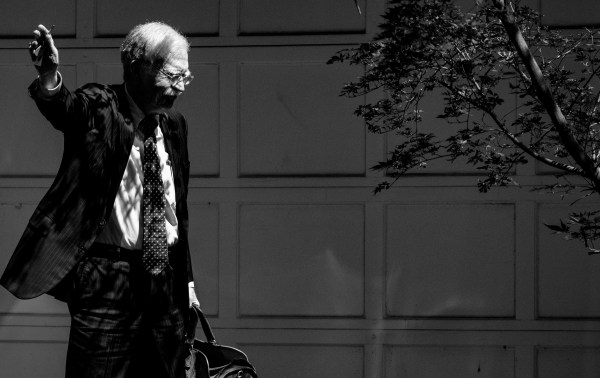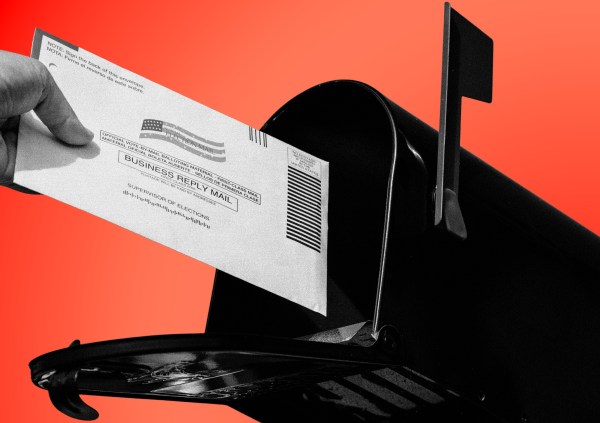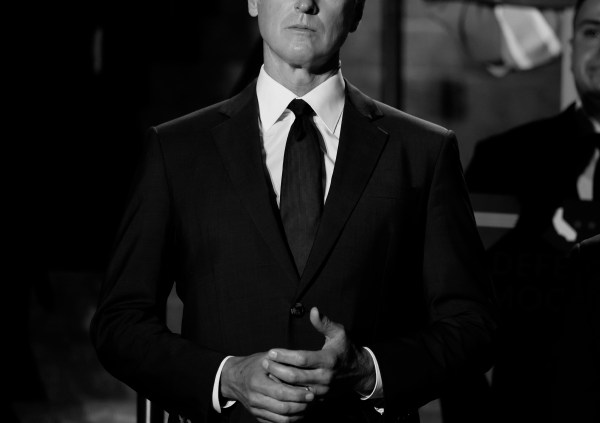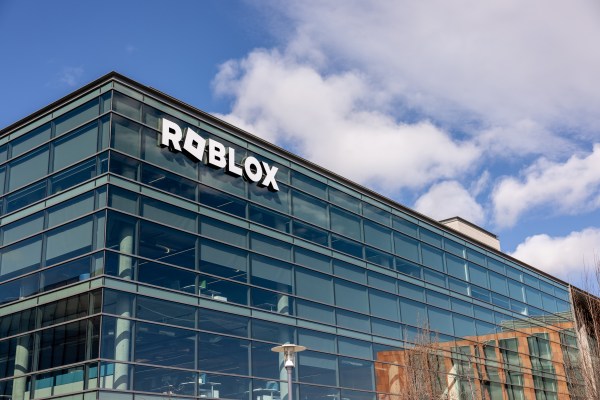The Trump administration likes to justify illiberal policies with liberal arguments. It does this, I assume, because it’s easier to build public support for an un-American program if it’s presented as a vindication of traditional American values. But part of me wonders if it simply tickles the president and his lackeys to use the enemy’s language when attacking the enemy’s system.
One example is the culture war being waged by the White House in the name of fighting antisemitism. Donald Trump and his circle are quite tolerant of people with hostility towards Jews, but pretending that they aren’t gives them a useful pretext to rationalize defunding left-wing universities like Harvard and deporting left-aligned foreign students who’ve criticized Israel. The government isn’t discriminating against the right’s cultural enemies on the basis of viewpoint, you see, it’s protecting Jews. Who could be against that?
Another example dropped on Tuesday at the State Department’s new Substack. Read it and you’ll find florid rhetoric celebrating the “rich Western tradition of natural law, virtue ethics, and national sovereignty” that the United States and Europe share—all in service of demanding that European governments lift the legal liabilities they’ve imposed on illiberal nationalist parties in the Trumpist mold.
That would be a fair argument coming from an administration that doesn’t disdain Western values like pluralism, free trade, limits on executive power, and procedural rules designed to prevent government abuses. (And which hadn’t, as of very recently, sworn off lecturing other nations on “how to live.”) As it is, it’s just another disingenuous liberal cudgel wielded in defense of an international authoritarian movement that despises liberalism.
To gauge how disingenuous, I offer you the most dystopian thing I’ve read about the state of the federal government this year—so far:
Amid rising tensions between the Trump administration and the judiciary, some federal judges are beginning to discuss the idea of managing their own armed security force.
…
The Supreme Court has its own dedicated police force, but other federal judges are protected by the U.S. Marshals Service, which reports to Attorney General Pam Bondi. Security committee members worried that Trump could order the marshals to stand down in retaliation for a decision that didn’t go his way.
A country where judges need their own bodyguards because they no longer trust the president to guarantee their safety if they rule against him (and understandably so) is a country waaaaay too far down the slope of banana republicanism to chastise anyone else about failing to live up to Western “virtue ethics.”
Today, we’re going to consider another liberal practice that’s been diverted to illiberal ends, showing mercy to prisoners through acts of executive clemency. What’s interesting about Trump’s abuse of the pardon power is that, increasingly, it’s not being justified with disingenuous liberal defenses. It is what it is, right out in the open.
Eagle Ed.
If it seems like grotesquely corrupt pardons are flowing more freely lately, there’s a reason. Eagle Ed is on the job.
“Eagle Ed” is Ed Martin, whom Trump named acting U.S. attorney in Washington earlier this year despite the fact that he hadn’t worked a day in his life as a prosecutor. The president later nominated him to fill the position permanently, but that required Senate confirmation. And although Senate Republicans have set the bar for confirming Trump cronies on the floor, somehow Martin still failed to clear it. You need to be awfully sketchy—like, Matt Gaetz levels of sketchy—for John Thune’s conference to bork you. Congratulations to Eagle Ed on that achievement.
Any other administration would have thanked him for his service after a vote of no confidence by Republican senators and shown him the exit. But to Trump, failing a test of accountability like Senate confirmation isn’t a reason to deprive someone of public power. It’s a reason to shift them into a position where there is no accountability. At least, not to anyone except him.
So that’s what the president did. After the White House pulled Martin’s nomination for the U.S. attorney job, Trump turned around and named him to two positions in the Justice Department that don’t require Senate approval, designating him the agency’s pardon attorney and the director of its task force on the weaponization of federal law enforcement. Both jobs logically call for someone with exemplary ethical standards; instead, a man who somehow couldn’t pass Sen. Thom Tillis’ test for fitness for office is now America’s chief legal officer in charge of clemency recommendations and “retribution” against those who served in the Biden administration.
Just like the Founders, heroes of our rich Western tradition, would have wanted.
It’s important to note here why the office of pardon attorney was vacant when Martin took over. Elizabeth Oyer, the person who last held the position, was fired in March. She claims that the White House insisted that actor Mel Gibson be added to a list of convicted criminals who, in the DOJ’s eyes, should have their legal rights to purchase a gun restored. According to Oyer, a higher-up in the agency gave her a warning: “He then essentially explained to me that Mel Gibson has a personal relationship with President Trump and that should be sufficient basis for me to make a recommendation and that I would be wise to make the recommendation.”
But she couldn’t do it in good conscience. Gibson pleaded no contest in 2011 to misdemeanor domestic violence, an offense where the risk of recidivism and/or escalation isn’t negligible. Oyer said no to the president’s request for a sleazy, irresponsible favor—and was promptly canned.
Eagle Ed Martin will not say no. He understands the assignment and has been eager in his first few weeks in his new role to complete it.
Sword and shield.
On Tuesday, with Martin’s enthusiastic support, the White House announced that it plans to grant full pardons to Todd and Julie Chrisley, two former reality-show personalities who were convicted in 2022 of fraud and tax evasion. The DOJ accused them of using false documents to take out $36 million in loans, which they spent on luxury cars, real estate, and paying off earlier loans before eventually declaring bankruptcy. Later, when the IRS came looking for $500,000 in back taxes, the Chrisleys supposedly took measures to hide their income from the agency.
Julie Chrisley’s conviction was later vacated on appeal, but Todd’s was upheld. So the couple’s lawyer appealed to the president for a pardon, tossing some argle-bargle into the application about “the weaponization of justice against conservatives and public figures” under the Biden administration. The Chrisleys, you see, are right-wing. Their daughter Savannah spoke at last year’s Republican convention and griped about “rogue prosecutors.”
There’s no obvious miscarriage of justice in their case that explains why they should have jumped to the front of the line for presidential mercy, unless you consider a Democratic administration holding Republicans accountable for crimes they’ve committed per se unjust. Which, I think, Trump and Martin do: They’re looking for excuses to impugn the Biden DOJ that indicted the president not once but twice and presumably saw the Chrisleys’ notoriety as an asset to be leveraged in that effort.
You don’t have to be rich and famous to catch a break from Eagle Ed, though.
On Monday, the president accepted Martin’s recommendation and pardoned Trump supporter Scott Jenkins, a former sheriff in Virginia who was convicted in December of taking more than $75,000 in bribes in exchange for appointing local businessmen as deputy auxiliary sheriffs in his department. (The badges helped them access certain perks, like getting out of traffic tickets.) Like the Chrisleys, Jenkins claimed that he was persecuted for his conservative politics, but three other defendants have pleaded guilty. No matter: In announcing the pardon on Truth Social, the president seethed about Jenkins being “dragged through HELL by a Corrupt and Weaponized Biden DOJ.”
When asked why Jenkins was a higher priority for clemency than thousands of more sympathetic federal prisoners who’ve already served hard time, Martin gave a revealing answer. “He’s a guy that was on the right side of a lot of issues and a lot of public service,” he told the Wall Street Journal, candidly. He was even more candid about his reasoning later on social media: “No MAGA left behind,” said Eagle Ed.
No MAGA left behind: That’s all there is to it. Outspoken Trump supporters who were successfully prosecuted by the prior administration are now being sprung from prison entirely irrespective of their guilt or remorse. We saw that already with the January 6 insurrectionists, of course, but that was a case of the president rewarding toadies who committed crimes to benefit him directly. Ed Martin is expanding the circle of MAGAs worthy of presidential protection to garden-variety swindlers whom Trump has likely never heard of, simply because they happen to have the right politics.
That’s one step closer to a legal system in which the most salient fact about a federal criminal defendant is what they think of Donald Trump and how noisy they’ve been about expressing it. Take the wrong stance and you’ll find yourself the target of a federal investigation in the thick of a mayoral primary; take the right stance and you’ll see federal charges against you disappear before that same primary gets going.
I think it’s telling that Martin went from being the person responsible for punishing federal crimes in D.C. to the person responsible for recommending that crimes committed by favored convicts not be punished. Eagle Ed is living proof that the White House views law enforcement as both a sword and a shield for political advantage. Whether law and order is virtuous or not is entirely situational.
Martin’s dual role as head of the DOJ’s “weaponization” task force is the icing on the cake. He’s so eager to wield that job as a political sword that he recently declared that he won’t let the lack of a crime stop him from dragging his enemies through the mud. “There are some really bad actors, some people that did some really bad things to the American people,” he told reporters earlier this month. “And if they can be charged, we’ll charge them. But if they can’t be charged, we will name them. And we will name them, and in a culture that respects shame, they should be people that are ashamed.”
If American culture respected shame, neither Trump nor Martin would be within a thousand miles of power. (The president would probably be in prison and begging for a pardon himself, in fact.) But that point aside, prosecutors aren’t supposed to be in the business of shaming people whom they don’t intend to charge, as James Comey’s myriad critics might remind you. What Ed “No MAGA left behind” Martin is doing isn’t law, it’s politics—and unlike in the case of campus antisemitism or Europe’s betrayal of Western traditions, this time there’s barely any high-minded liberal pretense that he’s doing anything else. Just some vague, check-the-box MAGA boilerplate about corrupt Democratic prosecutors.
Trial balloons.
From time to time I think back to what Sen. Susan Collins said when she was asked during Trump’s first impeachment trial whether she’d vote to convict him for demanding a quid pro quo of Ukraine. No, she answered, there’s no need. “I believe that the president has learned from this case,” she told CBS News. “The president has been impeached. That’s a pretty big lesson.”
He did learn a lesson. What he learned was that Senate Republicans would never hold him accountable for blatantly abusing his power.
I think Trump learns lessons like that all the time. Every transgression is a trial balloon: If it doesn’t draw a backlash, he’ll do it again eventually. And next time, he’ll push further.
Sometimes there is a backlash, and he swiftly retreats. “Liberation Day” amounted to him flipping the table of global trade; markets revolted, and within a week, he was hastily resetting the table. (“Trump Always Chickens Out!”) He also pulled back quickly during his first term amid an uproar over him ordering immigration officials to separate children crossing the border from their parents. He does learn lessons from pushback.
But mostly, he learns lessons from the absence of pushback. His escalating feud with Harvard, which has now reached the point of canceling all federal funds to the university, can be understood that way. The public didn’t care when he muscled schools like Columbia into accepting certain federal reforms aimed at preventing antisemitism on campus by threatening to withhold their federal funding. The Ivy League is the definition of an unsympathetic villain, after all, especially in a case like Columbia’s where antisemitic harassment isn’t just a cynical Trump talking point. No one’s going to weep over coddled leftist elites being browbeaten for their own political rhetoric for once.
Columbia was a trial balloon. The president inferred from it that Americans also wouldn’t care if he waged war on schools that resisted similar pressure campaigns, which is what he’s done with Harvard. Recently, he moved to bar international students from enrolling there, demanded all sorts of university data on current enrollees, and even threatened to yank Harvard’s tax exemption if it didn’t start complying with him. And so far, Trump is correct: No matter how aggressive his mau-mauing has become, no matter how it may have infringed on Harvard’s First Amendment rights, evidence of a broad public backlash is scant.
His personal graft can also be viewed as a series of trial balloons. It started with fat envelopes for his inauguration fund, proceeded to his memecoin scam, continued with the Trump boys cashing in around the world, and lately has led to something as brazen as a foreign government “gifting” a luxury jet to the United States for the president’s use. “This is American corruption on the scale of a post-Soviet republic or a postcolonial African dictatorship,” David Frum declared today at The Atlantic, sifting through the many examples of Trump exploiting his job to enrich himself. The public doesn’t care. The president learned another valuable (literally!) lesson.
Pardons, though, are the issue on which he floated his single most daring trial balloon.
Granting blanket clemency to the January 6 insurrectionists on his first day back in office was a gut check for the public, especially after Trump opted not to distinguish between violent and nonviolent offenders. He realized that most Americans wouldn’t like it, I’m sure, but not liking it and actively caring are two different things. Two weeks after he issued his clemency order, his job approval was still several points above water. The lesson: If Americans would let him pardon his foot soldiers in a coup attempt, they’d let him pardon anyone, especially after Joe Biden helpfully lent him some “both sides do it” cover in his final weeks in office.
The apathy that greeted that initial trial balloon encouraged him to proceed with further corrupt pardons like the ones for the Chrisleys and Scott Jenkins, I suspect—and may have even led him to functionally sell an act of clemency last month, before Eagle Ed Martin landed in the pardon attorney’s office.
The price of mercy.
A few weeks ago, Trump pardoned Paul Walczak, a former nursing home executive who pleaded guilty last November to tax offenses. Walczak withheld over three years more than $10 million from his employees’ paychecks that was supposed to go toward federal income and payroll taxes and instead went into his own pocket. He was sentenced in April to 18 months in prison and ordered to pay $4.4 million in restitution. Twelve days later, the president pardoned him.
What supposed injustice warranted that? Why, none: Walczak simply had the good fortune to be the son of Elizabeth Fago, who has hosted at least three fundraisers for the president and has donated millions to him and other Republicans. (She was also involved in getting Ashley Biden’s diary into the hands of Project Veritas.) Walczak’s pardon application leaned on that fact, according to the New York Times, absurdly alleging, like Jenkins and the Chrisleys did, that he was prosecuted by the Biden DOJ only because he was related to a well-known conservative donor.
Even so, his application was ignored—until, apparently, Fago attended a fundraiser last month at Mar-a-Lago that promised face time with the president for the small entry fee of $1 million per person. Three weeks later, Walczak’s pardon was issued. What a coincidence.
In hindsight, that, too, was a trial balloon. If there’s no backlash to Walczak’s apparent pay-for-play, and there almost certainly won’t be, what lesson will the president learn from the public’s complacency to inform his thinking on his next act of clemency? If you find it unthinkable that he’d attempt to sell a pardon in plain sight, in a straight-up transaction without the “attend my fundraiser” formalities, I’d like to know why. Logically, as he grows more confident that the public won’t punish him for his illiberal abuses, he’ll also grow less interested in bothering to disguise his abuses as acts of liberal virtue.
Ultimately, January 6 itself was a trial balloon. Trump may not have intended it that way, but it amounted to a test of whether half the country would grant him impunity for any sort of misconduct he might conceivably resort to. That test produced a clear result last November. He learned his lesson from the fact that we refused to learn ours, and now we have to live with it, however grotesque it gets.









Please note that we at The Dispatch hold ourselves, our work, and our commenters to a higher standard than other places on the internet. We welcome comments that foster genuine debate or discussion—including comments critical of us or our work—but responses that include ad hominem attacks on fellow Dispatch members or are intended to stoke fear and anger may be moderated.
With your membership, you only have the ability to comment on The Morning Dispatch articles. Consider upgrading to join the conversation everywhere.